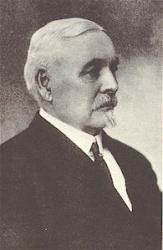Planning worship?
Check out our sister site, ZeteoSearch.org,
for 20+ additional resources related to your search.
- |
User Links
Search Results
[Still, still with Thee, when purple morning breaketh] (Case)
Appears in 2 hymnals Composer and/or Arranger: C. C. Case Tune Key: A Flat Major Incipit: 54651 17657 67712
[Still, still with Thee, when purple morning breaketh] (Case)
Still, Still With Thee
Author: Stowe Appears in 362 hymnals First Line: Still, still with Thee, when purple morning breaketh Used With Tune: [Still, still with Thee, when purple morning breaketh]
Still, Still With Thee
Still, Still With Thee
Author: Harriet Beecher Stowe Hymnal: Choice Songs #22 (1902) First Line: Still, still with Thee, when purple morning breaketh Languages: English Tune Title: [Still, still with Thee, when purple morning breaketh]
Still, Still With Thee
Still, Still With Thee
Author: Stowe Hymnal: The New Century Hymnal #126 (1904) First Line: Still, still with Thee, when purple morning breaketh Languages: English Tune Title: [Still, still with Thee, when purple morning breaketh]
Still, Still With Thee
Harriet Beecher Stowe

1811 - 1896 Person Name: Stowe Author of "Still, Still With Thee" in The New Century Hymnal Stowe, Harriet, née Beecher, daughter of the Rev. Lyman Beecher, D.D., was born at Litchfield, Connecticut, June 15, 1812. In 1832, her father having been appointed President of Lane Seminary, Cincinnati, Ohio, she removed therewith the family; and in 1833 was married to the Rev. Calvin E. Stowe, D.D., Professor of Languages and Biblical Literature in the same Institution. Her high reputation as an author is well known; and the immense success of Uncle Tom's Cabin, which first appeared in The National Era, in 1852, ensures her a lasting reputation. She has also written other well-known works. Three of her hymns appeared in the Plymouth Collection, edited by her brother, H. W. Beecher, in 1855:—
1. Still, still with Thee, when purple morning breaketh. Resting in God.
2. That mystic word of Thine, 0 sovereign Lord. Abiding in Jesus.
3. When winds are raging o'er the upper ocean. Peace.
Another hymn by Mrs. Stowe, "How beautiful, said he of old" (The Gospel Ministry), is No. 231 in the Boston Hymns of the Spirit, 1864. Her poetic pieces were published in her Religious Poems, 1867; and from a poem therein the hymn, "Knocking, knocking, who is there?" (Christ knocking), in Sankey's Sacred Songs and Solos is adapted. [Rev. F. M. Bird, M.A.]
-- John Julian, Dictionary of Hymnology (1907)
Harriet Beecher Stowe
C. C. Case

1843 - 1918 Composer of "[Still, still with Thee, when purple morning breaketh]" in The New Century Hymnal Charles Clinton Case USA 1843-1918. Born in Linesville, PA, his family moved to Gustavus, OH, when he was four. His father was an accomplished violinist, but a neighbor gave him a small violin when he was nine, and he mastered it before he could read music. At age 16 he went to singing school (without parental consent), borrowing the money from a neighbor. C. A. Bentley, a prominent conductor, was his first vocal music instructor, and William Bradbury's “Jubilee” was the school textbook. For three winters in a row, he attended Bentley's singing school, working his father's farm in the summer. He married Annie Williams. In 1866 he studied music in Boston with B. F. Baker. He also studied under George Root, Horatio Palmer, Philip Bliss, George Webb, and others, hymnwriters in their own right. Soon after, Case began teaching music, and when James McGranahan moved two miles from his home, they became friends. Case wrote and edited a number of Gospel song books in his life. 6 works.
John Perry
C. C. Case


 My Starred Hymns
My Starred Hymns

